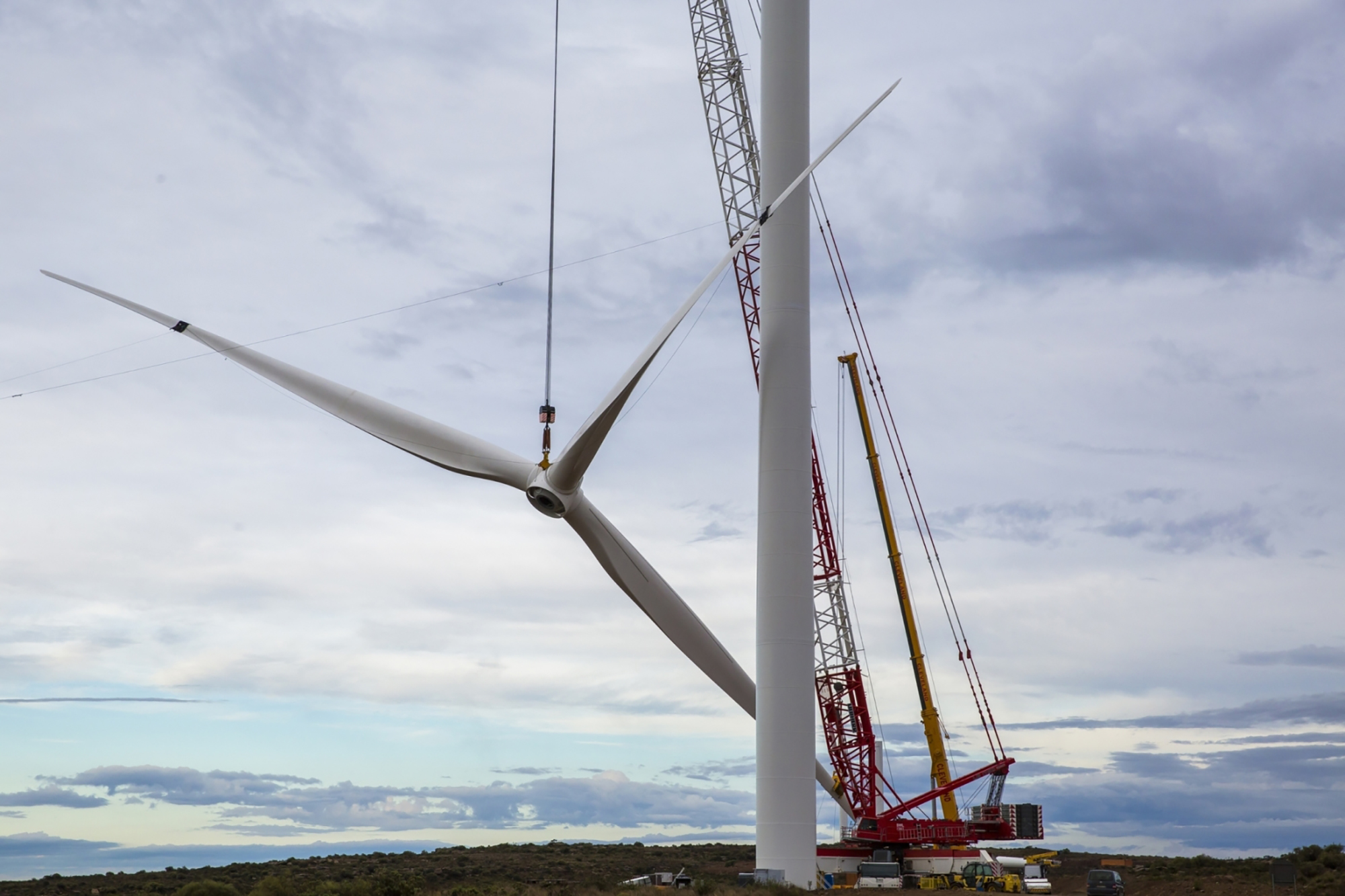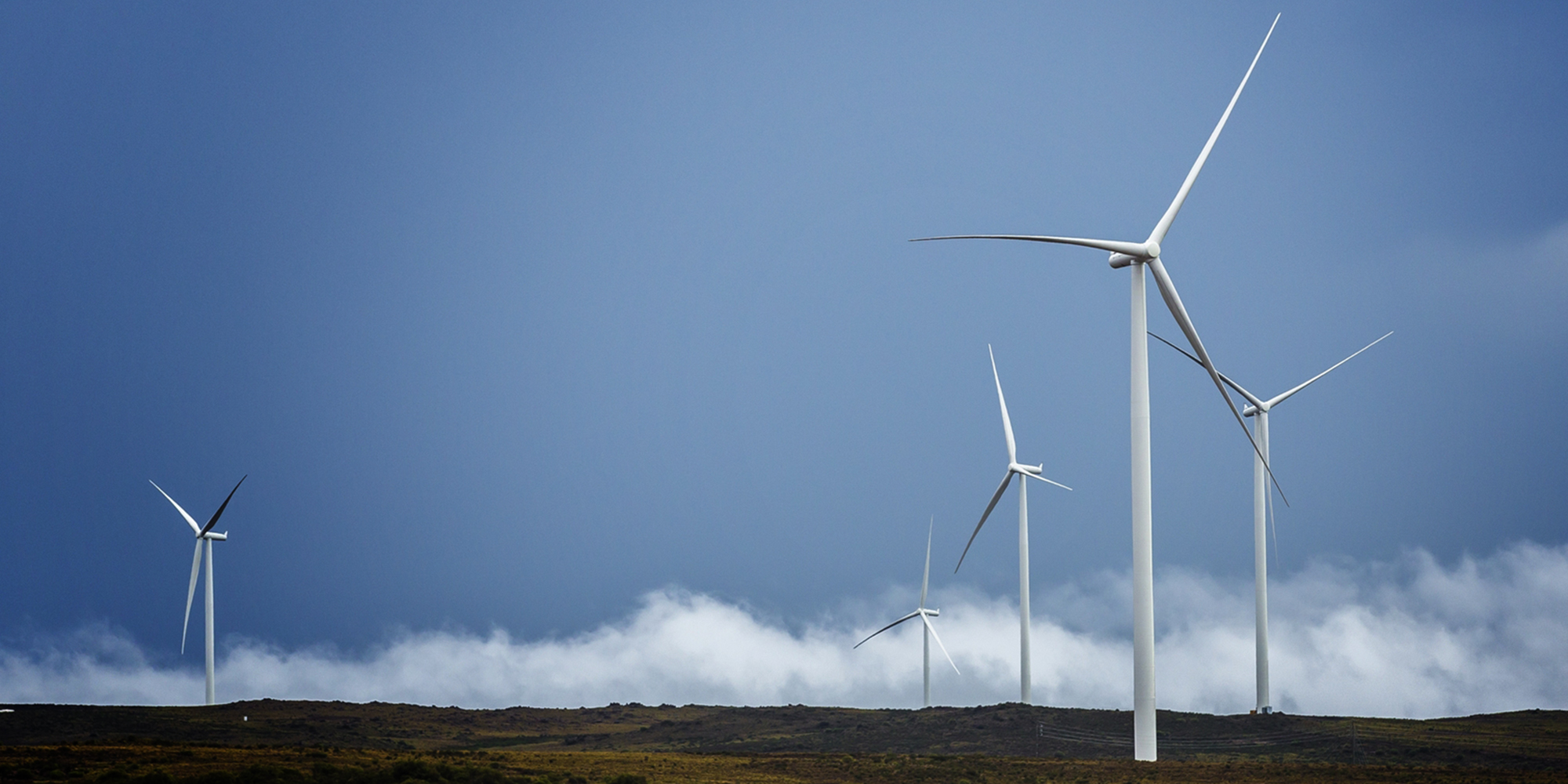To fulfil its global commitments to combat climate change, it is important for South Africa to transition from coal-generated electricity to renewable energy. However, due to the country’s triple challenges of unemployment, inequality and poverty, the transition needs to avoid reproducing these socioeconomic injustices.
Debates on the just transition in South Africa have centred on Mpumalanga, a heartland province in the minerals-energy complex which is responsible for most of the country’s electricity generation. However, the pathway to the just transition is anything but straightforward.
One part of the problem concerns how to transition from dirty coal energy without reproducing the triple challenges, and the other is how to deploy “clean energy” in the context of the very same challenges.
Connecting these two conundrums is the Renewable Energy Independent Power Producers Procurement Programme (REIPPPP). This flagship programme allows for the generation of green private electricity that is sold to Eskom on a 20-year purchase agreement, with local communities within a 50km radius sharing a slice of the revenue and ownership.
I want to highlight neglected aspects of the just transition debate: the host communities of REIPPPP projects, specifically those in the marginalised Northern Cape Karoo, and to put forward the argument for cash transfers to households to be part of community development as a rightful share and not as charity.
Two sides of the just transition
Since the REIPPPP’s inception in 2011, the Northern Cape has attracted the bulk of the investment from the REIPPPP, accounting for 59 of the 112 projects procured to date. This is due to favourable sunshine and pockets of good wind speeds in the province.
Despite this, the voices and needs of the communities that share a slice of the revenue and ownership in the projects are absent from national debates, including in the Just Transition Framework by the Presidential Climate Commission. This is a problem because the energy transition transcends the provincial boundaries of Mpumalanga and includes marginalised communities, often in rural towns.
In South Africa, the concept of the “just transition” gained prominence in 2018 on the back of a court interdict by the National Union of Metalworkers of South Africa (Numsa) and Transform RSA.
At the heart of organised labour’s concerns is that a privately owned renewable energy sector, such as the one spearheaded by REIPPPP, will lead to job losses in the coal sector’s value chain, with serious negative knock-on effects in Mpumalanga and the surrounding communities dependent on coal for their livelihoods.
To be sure, organised labour is not opposed to renewable energy deployment. Instead, Numsa has proposed a “socially owned renewable energy sector” which puts workers and their communities at the centre of the energy transition.
In my PhD, I looked at Numsa’s key concerns with job creation and community development from the perspective of the Northern Cape. I used the development of two sister wind farms 60km outside the town of Loeriesfontein, in the Hantam Local Municipality, as a case study.
My PhD looked at whether renewable energy projects were advancing sustainable development in Loeriesfontein in the first instance through the contribution to decent work. And, secondly, through mandatory community development financed by a share of revenue.
My study found significant shortcomings in the advancement of decent work and sustainable development imperatives. It is important to get these right as Loeriesfontein stands to benefit from two additional projects – a solar farm and a wind farm.
In addition to the wind farms, these two projects come with extra funding for community development that will be spent throughout the Hantam Local Municipality.
Although the renewable energy sector is not responsible for the significant socioeconomic challenges in host communities, the sector is uniquely positioned to address them. To do so, the sector needs to advance a locally driven sustainable development agenda that draws attention to three moral imperatives: 1) satisfying human needs, 2) enhancing social equity, and 3) respecting environmental limits.
At a local level, this calls for providing decent work where possible, foregrounding local participation and needs in community development, and respecting local environmental limits. Cash transfers could prove to be effective in satisfying the first two moral imperatives.
Sustainable development in context
Established in the late 19th century on a farm previously granted by the colonial authorities to pastoralists of “mixed-race” descent, Loeriesfontein is today a predominantly coloured town in which the effects of apartheid spatial planning in the form of the Group Areas Act are still visible.
 A wind turbine is assembled at Loeriesfontein wind farm in the Northern Cape. (Photo: Flickr / MainstreamRP)
A wind turbine is assembled at Loeriesfontein wind farm in the Northern Cape. (Photo: Flickr / MainstreamRP)
Data from a household survey conducted in July 2019 show that in a town of around 3,000 people, many households are in distress. Close to two-thirds of households rely on one or other form of government social grants for meeting basic needs. Close to half of the household survey respondents (46%) reported state grants as their main source of income.
When it comes to the labour market, the majority of those in employment are underemployed and working in unskilled and low-skilled jobs in the agricultural sector (the mainstay of the local economy) and the government’s Community Works Programme.
Youth unemployment among people aged from 20 to 29 years sat at 60%.
Expressed in per capita terms, 59% of the households had a monthly income at or below the country’s upper-bound poverty line of R1,227 measured in 2015.
In 2015, 49% of the households in South Africa had a monthly income of or below R1,227, while for the Northern Cape, this figure stood at 54%.
The wind farms which are owned and operated by Mainstream Renewable Power South Africa were constructed between 2015 and 2017 as part of Bid Window 3 of REIPPPP.
Community development associated with the farms is monitored by the IPP Office and currently, there is no instrument to measure the actual impact of the money poured into development apart from renewable energy developers reporting every quarter how much money was spent.
For my PhD, I found that during the construction of the wind farms, there was a short-term contribution to employment creation, but that this was not a source of long-term employment and decent work. At the peak of the construction phase, around 600 construction-related employment opportunities were created, and around 100 went to local residents – mostly young men. The other 500 went to internal migrant South African workers and foreign skilled and specialised workers.
While jobs for local residents were mainly unskilled and temporary, wages were considerably higher than the going rate in the labour market. However, post-construction job retention was alarmingly, but unsurprisingly, poor. Only two out of 25 former workers I interviewed were still permanently employed when I interviewed them in 2018.
A major problem that my study found with the approach and process to community development is that it is a tick-box and compliance-oriented exercise that is prone to local elite capture – as evidenced by the dissolution of two ward committees between 2016 and 2019 on the grounds that its members were allegedly advancing their own interests and not those of the community.
In addition to community development initiatives already under way, two community trusts which hold community equity ownership in the wind farms will accrue share dividends in the future. These funds in particular could support innovative investments in local wellbeing through direct cash transfers to households, for example.
The community trusts have the potential of alleviating household poverty once they become operational. The goal here is the removal of obstacles that hinder economic participation for households. This potential could be realised provided there is strong, transparent, democratic management of the trusts, at the same time ensuring that impoverished households in the municipality are targeted as beneficiaries.
Policy recommendations
As mentioned above, additional funding linked to two more projects and community trusts will be available for community development and a just transition is possible provided there is cooperation, transparency and local community participation beyond the host communities.
Recommendations from my PhD for the realisation of a just transition in the Karoo are two-fold. First, the 50km radius rule that guides which towns will be included as beneficiary communities should be relaxed as it is exclusionary in a sparsely populated region like the Northern Cape.
Second, community development should be data-guided and a standardised household survey like the one conducted in Loeriesfontein is a good starting point.
To neutralise political tensions around community development there must be clear goals and targets of development. Here, cash transfers, with the goal of eradicating poverty and the target being poor households, are a good starting point. DM
Dr Boitumelo Malope is a Postdoctoral Fellow in the Sociology of Land, Environment and Sustainable Development in the Department of Sociology and Social Anthropology, Stellenbosch University. Funding from the National Research Foundation (NRF) towards this research is acknowledged.




 A wind turbine is assembled at Loeriesfontein wind farm in the Northern Cape. (Photo: Flickr / MainstreamRP)
A wind turbine is assembled at Loeriesfontein wind farm in the Northern Cape. (Photo: Flickr / MainstreamRP)